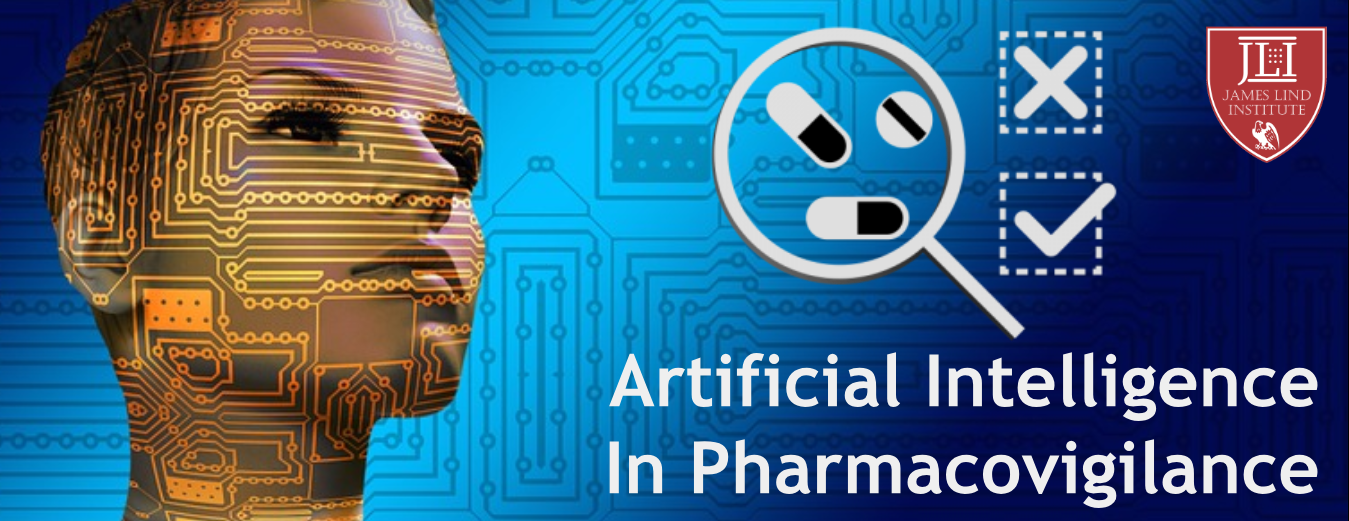In contrast to intelligence displayed naturally by humans and animals, Artificial intelligence (AI) or Machine intelligence is demonstrated by machines. The genius created by AI tools these days affects every area of art, science and other professions including Pharmacovigilance systems. Pharmacovigilance is an iterative process like drug development where all stakeholders work collaboratively and proactively through a systematic safety monitoring approach.
According to Global Market Insights, by 2024, the outsourcing Market of Pharmacovigilance is expected to surge at 15.7% (CAGR) to 7.5 Billion Dollars. The transition towards more safety surveillance activities and demand for comprehensive innovative approach in Pharmacovigilance industry is increasing. The professionals in this industrial sector are not immune to the benefits of Artificial Intelligence. At early stage of usage, machine learning and AI tools have demonstrated feasibility to predict potential issues and further provide insights for enhancing patient safety in clinical trials.
Tata Consultancy Services (TCS) is one such company providing solutions like Artificial Intelligence for Cognitive Automation, analytics and workflow handling, Extraction of data by Natural Language Processing (NLP) Engine, WHODD/MedDRA related Data Enrichment, machine-centric decision making and continuous learning, etc. The solution of Output Generation enables standardization and integration of output data with safety databases.
The answer to most intelligent question of replacing people with Artificial Intelligence can be answered by more Trained Human Capital. The word “displacement” rather than “replacement” of work will result due to bulk impact from the automation of work through AI. Similar to the abacus-to-calculator-to-Excel phenomenon that created completely new work with respect to enterprise performance management, financial planning and reporting; AI will end up accelerating the future of work and displacement of jobs. People will be needed in many different ways to make AI operational, thus emphasising greater impact of AI on jobs. Other jobs that require creativity, compassion and generalized thinking will be created, thus shifting the negative narrative impact of automation on jobs.
The critical requirement of human knowledge and expertise in AI projects of pharmacovigilance industry include:
- AI cannot replace the ethical compass and socio-ethical intelligence of human race and culture.
- People loop in appropriate context and orient AI towards the right goals. Human intervention in supervised learning allows advance labelling of datasets before running AI algorithms. People in unsupervised or reinforced learning need to ensure that the algorithm proposed leads to desired business results. For instance in pharmacovigilance, prioritizing and differentiating between life-threatening and benign secondary effects of medicine is necessary.
- Governance and planning in a digital workforce should account for inputs, outputs and every other exchange process involved, since machine autonomy cannot be introduced into the mix.
- The new man-meets-machine dynamic will handle complexity, improve performance in current jobs and allow focus to shift to more complex jobs of higher value. Employees can target bigger issues and concerns like Medical Review in Pharmacovigilance by distributing some tasks to AI.
- People with domain knowledge are key instruments in preventing AI bias caused by rushed or incomplete training algorithms and lack of diversity in data samples.
- Managing next-gen hybrid collaboration of humans and robots is different and challenging. Directing this dramatic change forward is possible by employing individuals with right skills to co-work with functional machines. AI design puts seasoned employees alongside machines while moving from “humans in the loop” to “computers in the group.” Change management needs to be considered before using AI for desired results. Negative thinking among employees and rushing projects creates problems in future, thus causing more harm than good. A clear change management plan at the start of every project prevents problem associated with people and technology.
References:
- Global Market Insights, Inc. SELBYVILLE, Delaware, December 10, 2018 /PRNewswire/ –Pharmacovigilance Outsourcing Market
- 7 reasons why artificial intelligence needs people, By Sanjay Srivastava, Digital Insurance, Published December 03 2018
Online Course in Pharmacovigilance and Clinical Data Management
James Lind Institute (JLI) provides an online program in Advanced PG Diploma in Pharmacovigilance & Data Management for comprehensive understanding of data management and pharmacovigilance analytics.
For more information please visit: www.jli.edu.in


